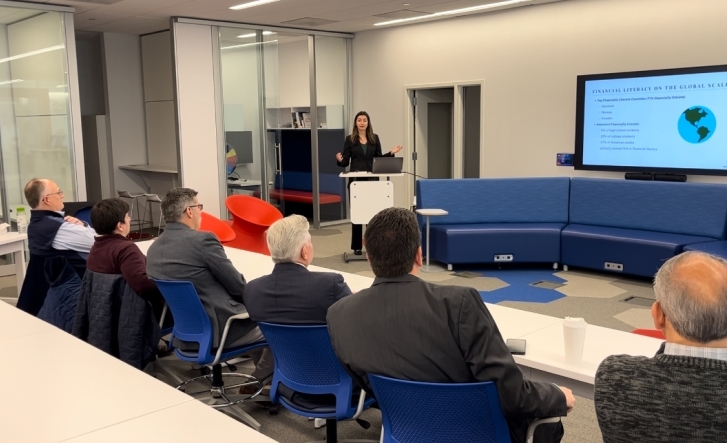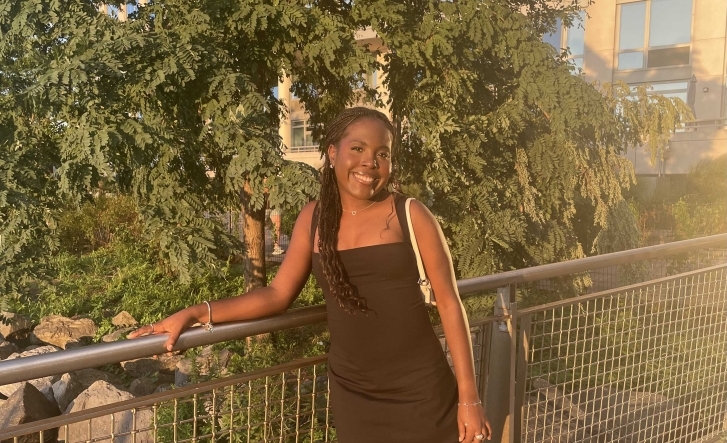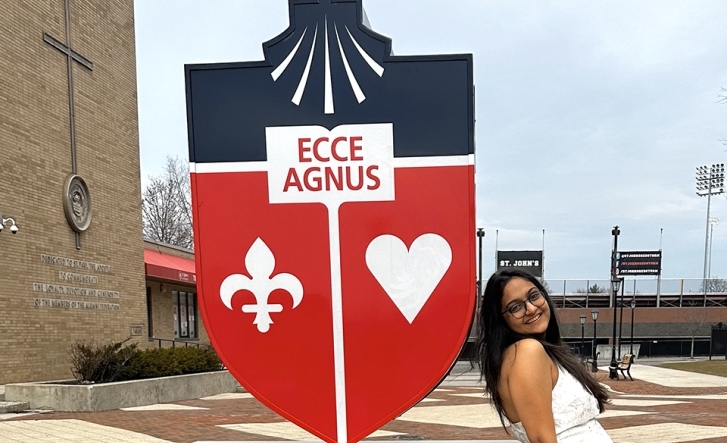Nicole Olgun
Enthusiastic Doctoral Student Gives Three Cheers for Toxicology

Nicole Olgun ’07, ’13P found her true calling at St. John’s by soliciting advice about majors from one of her deans and taking a course from a professor who later became her mentor.
As a second-semester sophomore, Nicole needed guidance in choosing a major that would fully engage her curiosity and her love of science. A visit to John-Emery Konecsni, Ph.D., Assistant Dean of the College of Pharmacy and Health Sciences, led Nicole to look into the possibility of choosing toxicology.
“Frankly, I knew absolutely nothing about the field at the time,” she said. However, it didn’t take long for Nicole to become excited by her new major’s focus on scientific principles and the study of environmental poisons. “I am fascinated by the interrelationship between the environment and the human body,” she added. Today she is a doctoral student in toxicology at St. John’s.
As Nicole got more involved in her studies, she decided she wanted to pursue a career path leading to a position in the growing area of environmental emergency planning. “I hope to be among the first responders to be able to tell people when it’s safe to drink the water and what chemicals to be wary of,” she said.
To become a leader in the field, she soon realized, would require expanding her credentials by earning advanced degrees in toxicology. This time she didn’t need to seek any advice — she knew where she wanted to earn her credentials and whom she wanted to have mentor her research. She applied to and was accepted by St. John’s doctoral program in toxicology, and she asked Sandra Reznik, Ph.D., M.D., Associate Professor, Pharmaceutical Sciences, to be her mentor.
As an undergraduate, Nicole had the good luck to take an introductory pathology course with Dr. Reznik — another turning point for the future toxicology leader. “I was swept away by Dr. Reznik’s passion for teaching and asked if I could join her lab,” she recalled. Dr. Reznik said yes and the beginnings of a mutually satisfying relationship were planted.
“Nicole took the time to use the lab to learn research techniques and to get acquainted with the culture of a laboratory,” said Dr. Reznik. “When Nicole began her master’s program, she asked if she could continue to use the lab and if I would become her mentor. I am happy to say that today, as a doctoral candidate, Nicole still works in my lab and I am still her mentor,” said Dr. Reznik.
Nicole found Dr. Reznik’s lab the perfect home for conducting experiments on preventing pre-term births — which is the subject of her doctoral thesis. “I get to do work with animals, which I love, and Dr. Reznik is always there to answer my questions.”
Their partnership has also resulted in publications for Nicole in highly regarded peer journals — including the crown jewel for toxicology experts — the American Journal of Pharmacology and Toxicology.
In addition to being a student representative to the Mid-Atlantic Society of Toxicology — a regional chapter of the Society of Toxicology — Nicole has consistently presented her work at the Society’s annual spring and fall meetings. By maintaining a high profile in the Society, she hopes to get more students from her department engaged in these meetings. She is also a teaching fellow, helping undergraduates learn how to navigate laboratory research.
“Nicole is an exceptional student who cares very deeply about her work and serves as a role model for many of the more junior graduate students in our department,” observed Dr. Reznik.
What makes this 26-year-old toxicology doctoral student really stand out, according to Dr. Reznik, is her “unique combination of curiosity and diligence.” Dr. Reznik credits these qualities for enabling Nicole to make contributions to the field. “Her research findings were critical to our recent success in obtaining National Institutes of Health funding,” she said.
While her professor can’t help singing her student’s praises, Nicole can’t help being a cheerleader for toxicology.



